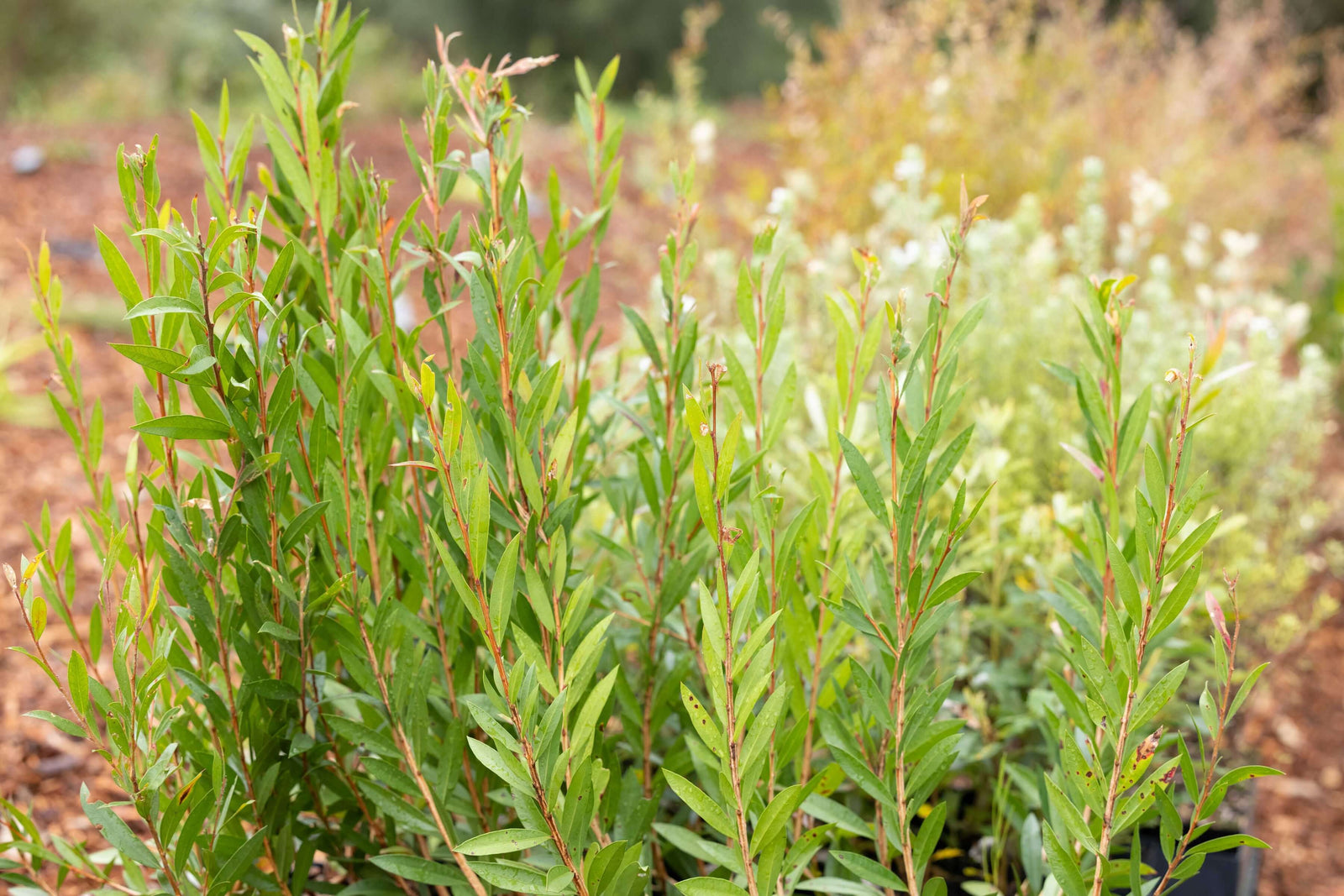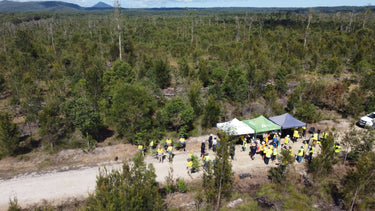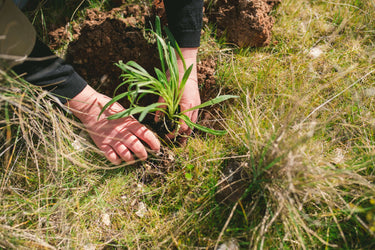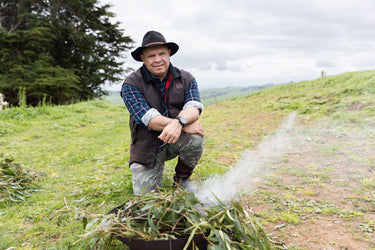Each year, National Reconciliation Week (NRW) is recognised from 27 May to 3 June. It acknowledges two significant dates in Australia’s history and the importance of advancing reconciliation in our country.
Greenfleet is committed to advancing reconciliation through our work restoring and protecting native forests. This year’s NRW theme, Bridging Now To Next, encompasses the work we strive to do in moving forward with reconciliation and working with Traditional Owners.
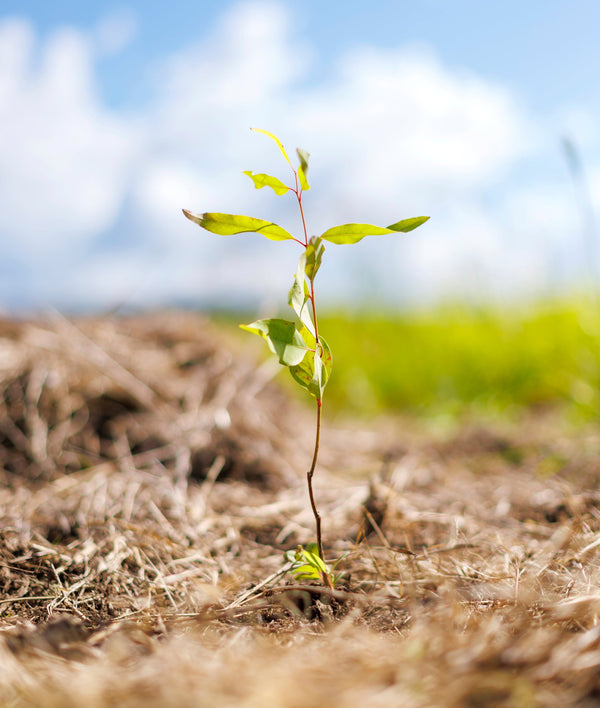
Why Do We Recognise National Reconciliation Week?
Reconciliation in Australia means strengthening the ties between Aboriginal and Torres Strait Islander peoples and non-Indigenous peoples. National Reconciliation Week is celebrated so that all Australians can learn about, and reflect on, our shared histories, achievements and cultures. It’s a time to explore how individuals, businesses, and governments can contribute to achieving reconciliation.
Greenfleet celebrates NRW as we recognise that the lands on which we work have been cared for by the longest standing land managers on Earth. Where possible we work directly with the Traditional Owner, acknowledging their knowledge and wisdom in caring for Country.
What is National Reconciliation Week?
NRW runs from 27 May to 3 June each year, dates that acknowledge two significant moments in Australia’s history.
May 27 is the date of the 1967 referendum, that saw 90% of Australian’s voting to include Indigenous Australians in the Census. This formally recognised First Nations people as a part of our population and allowed the government to begin making policy that would benefit them. Up until this time, Aboriginal and Torres Islander peoples had not been officially seen as a part of Australia’s population.
The Week ends on June 3, the anniversary of the 1992 Mabo Decision. This is the date that the High Court of Australia recognised that a group of Torres Strait Islander people, led by the late Eddie Mabo, were the custodians of Mer (Murray Island). Terra nullius (the idea that the land belonged to no one) was overruled in this landmark decision and led to the passing of the Native Title Act 1993.
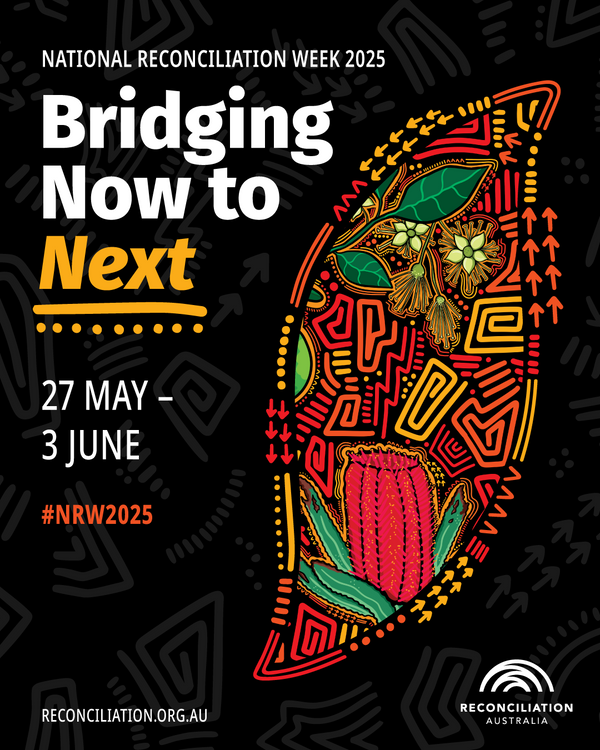
2025 Theme - Bridging Now to Next
This year the National Reconciliation Week theme is Bridging Now to Next. The theme asks Australians to reflect the ongoing connection between past, present and future, and to move forward with past lessons informing our next steps.
This artwork, created by Kalkadoon woman Bree Buttenshaw, depicts native plants which are known for regenerating after fire and thriving after adversity. They are a potent symbol of strength and the possibilities of renewal.
Greenfleet’s work of restoring ecosystems with locally native species provides us with the knowledge of this ongoing resilience. We continue to nurture and monitor our native seedlings for them to grow and flourish. Our focus is on this commitment to nature and the subsequent benefits to the local communities and First Nations peoples on whose lands we work.
Reconciliation Australia invites all Australians to join them in Bridging Now to Next, to build a more united and respectful nation, for this week and the into the future.
Greenfleet’s Commitment To Reconciliation
Greenfleet respects that we are working with, and learning from, the oldest continuous cultures and longest standing land managers on Earth. We recognise that climate action aligns with Reconciliation, so we continue to listen to First Nations voices as we work to deliver climate action and restore native habitat.
Below is a selection of projects where we are working directly with the Traditional Owners to restore Country and deliver benefits to local communities:
-
![]() learn more
learn moreGreenfleet is working with the Kabi Kabi people, the Traditional Owners of Queensland’s Sunshine Coast region, along with the Kabi Kabi Peoples Aboriginal Corporation to restore around 900 hectares to native koala habitat in the Noosa Hinterland.
-
![]() learn more
learn moreOn Dja Dja Wurrung Country, near Wedderburn in Central Victoria, Greenfleet is revegetating part of this project with culturally significant food for the Djaara people, like fibre grasses for cultivation and utilisation in traditional practices.
-
![]() learn more
learn moreGreenfleet works with the Boonwurrung Land and Sea Council on our work in South Gippsland, including the naming of our Wurneet Laang Laang forest and Welcoming us and our supporters to Country with smoking ceremonies.
Greenfleet is committed to advancing reconciliation through our work and bridging now to next. You can read more about Greenfleet’s partnerships with Traditional Owners here.
To read our Reflect RAP, click here
For more information on National Reconciliation Week, visit the Reconciliation Australia website.


